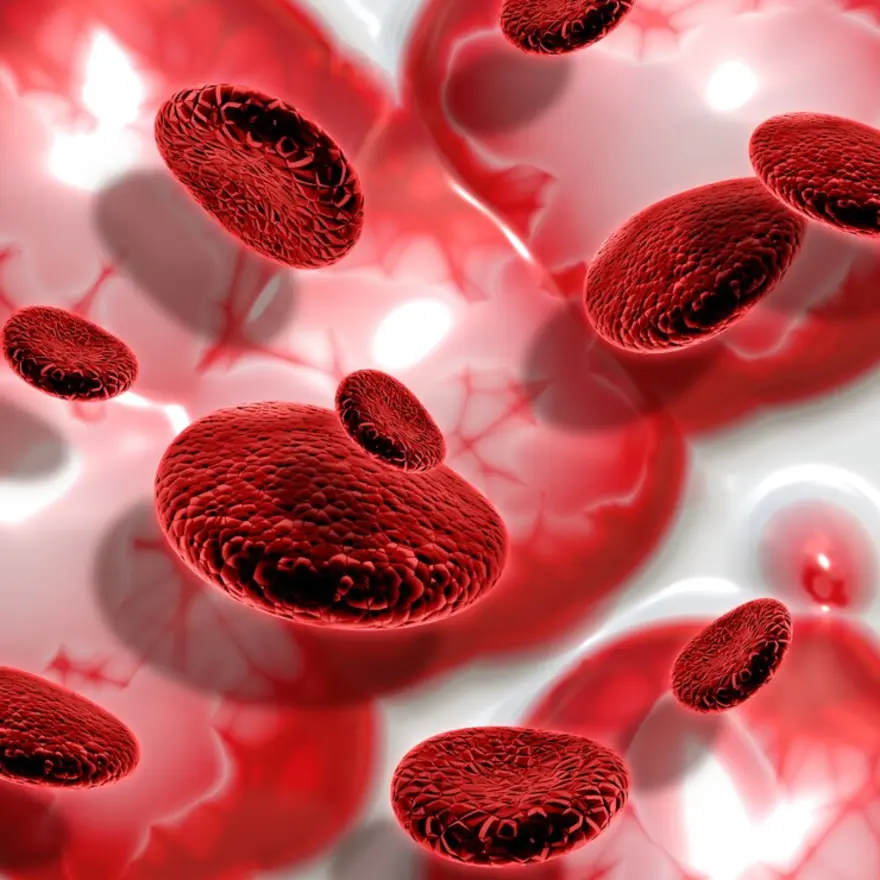Osteoporosis Profile-I
52+ booked in last 3 daysOsteoporosis Test Overview
Osteoporosis is a bone condition that causes reduced bone mass leading to frequent bone and joint pains, brittle bones and increased risk of fractures. Various factors apart from age, sex, and racial predisposition increase the risk of osteoporosis. The condition often goes undiagnosed till the occurrence of an injury, fracture or deformity. Hence, it is recommended to get an Osteoporosis Profile test to measure the various parameters in blood and urine that may increase the risk of osteoporosis in an individual.
Osteoporosis is a condition in which there is a severe loss of bone density. As a result, bones become weak and more susceptible to fracture. The term "osteoporosis" literally means "porous bone." The issue is most common in older adults and can result in height loss over time. Osteoporosis is usually not painful until a bone fracture; however, shattered bones in the spine are a major source of long-term pain. Thus testing for osteoporosis is critical. Here's all you need to know about the Osteoporosis Profile-I Test.
Why is the Osteoporosis Profile-I Test Done?
- To evaluate bone health and diagnose osteoporosis.
- To detect early signs of bone loss and to take preventive measures.
- To check for any mineral or protein imbalances in the blood that may affect bone health.
- To monitor the levels of bone turnover markers, which are important for bone health.
- To assess the risk of bone fractures and to make decisions about treatment options
Osteoporosis Profile-I Price
Metropolis Healthcare is a leading diagnostics centre and pathology lab in India equipped with the latest state-of-the-art technologies that provides the Osteoporosis Profile-I with a clear pricing structure.
The Osteoporosis Profile-I Price in Mumbai is ₹ 2,030 .
We are committed to deliver accurate and quality results from the best labs in India with complete transparency regarding test cost and turnaround time. No matter where you are, we strive to offer patients high-quality service that is affordable and accessible.
Frequently Asked Questions
Osteoporosis test measures certain parameters in blood and urine that may aid the diagnosis of osteoporosis. The common symptoms are frequent non-specific backache, brittle bones leading to frequent falls and fractures, loss of height over time, bending of the spine (kyphosis). Osteoporosis test may also be recommended in certain individuals with risk factors for developing osteoporosis. These include:
- Post menopausal and early menopausal women
- Long term corticosteroid usage leading to reduced bone density over time.
- Positive family history.
- Hormonal disorders of the thyroid or parathyroid glands.
Osteoporosis test measures the levels of calcium, phosphorus and alkaline phosphatase in blood serum.
The Osteoporosis Profile-I measures the levels of markers that are important for bone health. The test typically includes measurements of calcium, phosphorus, and alkaline phosphatase (ALP) in blood serum. By measuring these markers, the Osteoporosis Profile-I test can provide important information about a person's bone health and the risk of developing osteoporosis.
During osteoporosis test blood sample is taken from a vein in your arm, using a small needle. After the needle is inserted, a small amount of blood will be collected into a test tube or vial. You may feel a little sting when the needle goes in or out. This usually takes less than five minutes.
During an Osteoporosis Profile-I test, a healthcare professional will collect a blood and urine sample to assess bone health and diagnose osteoporosis. No special preparation is usually required, and the test is not generally painful. The procedure takes a few minutes, and the results are typically available in a few days.
Low calcium levels may lead to dry skin, coarse hair, brittle nails, muscle cramps, tingling, and cardiac irregularities. Low calcium levels (hypocalcemia) may occur due to hypoparathyroidism, kidney conditions, malnutrition. pancreatitis, low calcium diet and vitamin D deficiency.
High calcium levels may lead to constipation, abdominal pain, nausea, vomiting, and mental confusion. High calcium levels (hypercalcemia) may indicate hyperparathyroidism (overactive parathyroid gland), certain cancers, bone disorders like Paget's disease or high vitamin D levels.
High phosphorus levels maybe due to kidney disorders, diabetic ketoacidosis, liver diseases, hypoparathyroidism, hypocalcemia, excess phosphorus in the diet and even due to certain medications.
Low phosphorus levels may occur due to hyperparathyroidism, hypercalcemia, lack of phosphorus in the diet, alcoholism and malnutrition.
High levels of ALP are seen in:
Children during active bone formation, pregnant women, those with hepatobiliary disease like bile duct obstruction, hyperparathyroidism, chronic kidney disease, vitamin D deficiency, rickets, osteomalacia, bacterial infection and malignant tumour.
If the results are abnormal, it may indicate that there is an issue with bone health or an increased risk for osteoporosis.
-
- Abnormal calcium levels:
Low calcium levels may indicate issues with calcium metabolism or absorption and may also occur due to hypoparathyroidism, kidney conditions, pancreatitis, and vitamin D deficiency.
High calcium levels may indicate hyperparathyroidism, certain cancers, and bone disorders like Paget's disease
-
- Abnormal phosphorus levels:
High phosphorus levels can be a sign of kidney disease, diabetic ketoacidosis, liver diseases, and hypoparathyroidism.
Low phosphorus levels may occur due to hyperparathyroidism, hypercalcemia, and lack of phosphorus in the diet.
-
- Abnormal alkaline phosphatase levels:
It can indicate increased bone turnover, which can be a sign of osteoporosis or other bone disorders.
Individuals suffering from hyperparathyroidism, chronic kidney disease, vitamin D deficiency, rickets, osteomalacia, bacterial infection and malignant tumours can have high ALP levels.
The Osteoporosis Profile-I is a blood and urine test that includes several biomarkers to assess bone health and diagnose osteoporosis. The test typically measures levels of calcium, phosphorus, and alkaline phosphatase in the blood.
Typically, no special preparations are required for an Osteoporosis Profile-I test. It is also good to keep in mind that for accurate results, you should avoid taking any medications that affect bone metabolism, such as bisphosphonates, calcitonin, or vitamin D supplements, for at least 48 hours before the test. Talk to your doctor for more guidance.
Here are the normal levels for the components of this profile:
-
- Calcium: The normal range for calcium in blood serum is 8.5 to 10.2 milligrams per deciliter (mg/dL).
- Phosphorus: The normal range for phosphorus in blood serum is 2.5 to 4.5 mg/dL.
- Alkaline phosphatase (ALP): The normal range for ALP in blood serum is 44 to 147 international units per liter (IU/L).
Osteoporosis is a condition that typically develops over time and often has no symptoms in its early stages. People with the following symptoms should do the Osteoporosis Profile-I test:
- Postmenopausal women and older adults, as they are at a higher risk of developing osteoporosis
- People with certain medical conditions that affect bone health, such as rheumatoid arthritis.
- People who have experienced a fracture as an adult.
- People who have lost height over time
- People with a stooped posture
- People who have chronic back pain caused by a collapsed vertebra
- People who have had a DEXA scan that shows low bone density
-
- Bone mineral density (BMD) test: This test uses x-ray or ultrasound technology to measure the density of bones in the spine, hip, and sometimes the wrist. Low BMD is a sign of osteoporosis.
- Vitamin D: This test measures the level of vitamin D in the blood.
- Parathyroid hormone (PTH): This test measures the level of PTH in the blood. PTH is a hormone that regulates the balance of calcium and phosphate in the body, which is important for bone health.
- Urine N-telopeptide (NTx) test: This test measures the levels of a marker of bone resorption in the urine, which can be elevated in conditions that cause bone loss.
Osteoporosis Markers Panel
Bone Metabolism Markers
Bone Resorption Markers Panel
Calcium (Ca)
Phosphorus (P)
Alkaline Phosphatase-Total (ALP-Total)
Beta 2 Crosslaps (CTX-1)
Ratings & Reviews (0)
Why Metropolis?
Metropolis has a team of 200 senior pathologists and over 2000 technicians delivering diagnostic solutions in the areas of routine, semi specialty and super specialty domains like Oncology, Neurology, Gynaecology, Nephrology and many more.
We offer a comprehensive range of 4000+ clinical laboratory tests and profiles, which are used for prediction, early detection, diagnostic screening, confirmation and/or monitoring of the disease.



.png)

















 WhatsApp
WhatsApp